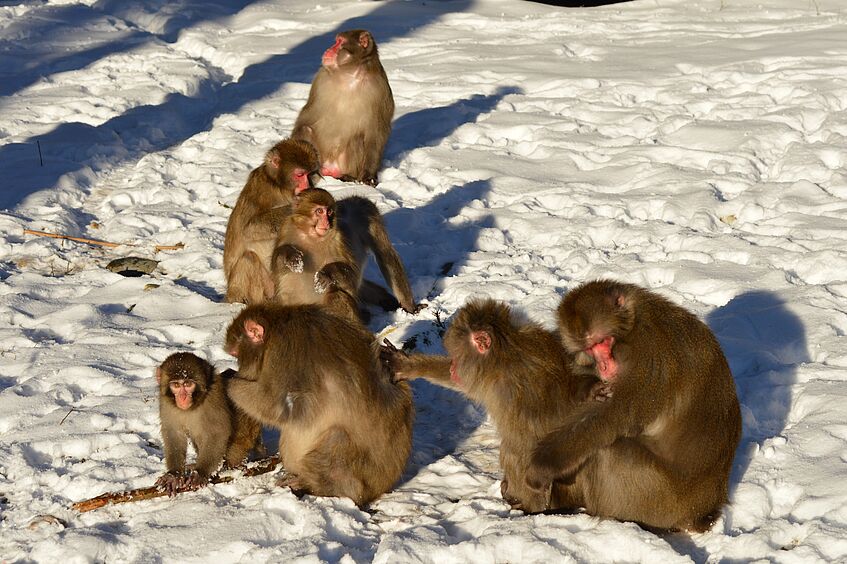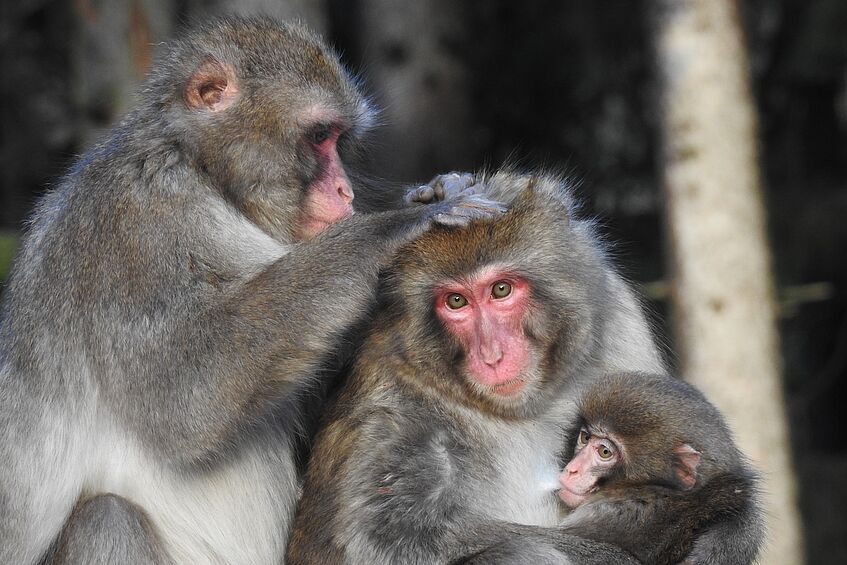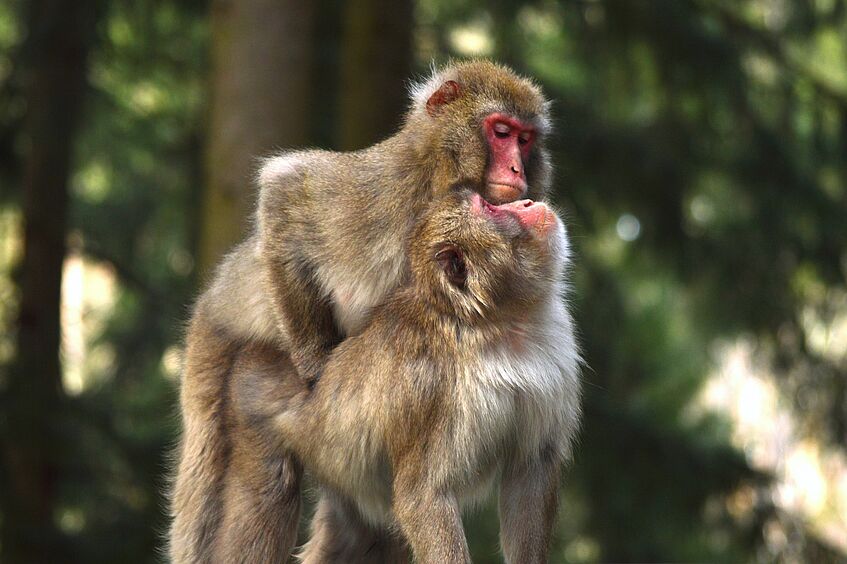Japanese macaques
Japanese macaques (Macaca fuscata) are the northernmost-living non-human primates. They are native to Japan and inhabit three of the four large Japanese islands and small islands off the coast. Japanese macaques are organized in big multi-male multi-female groups and live in matrilineal, female bonded societies. Females remain in their natal group while males emigrate when they reach sexual maturity. The group size and composition among wild groups of Japanese macaques varies highly and may change as a result of fission events.

© Angela Stojan

© Jana Jäckels
Among the genus Macaca they are the most despotic species alongside the rhesus macaques (Macaca mulatta) and have a strict linear dominance hierarchy. Females inherit their mother’s rank and although the female dominance hierarchy is generally stable, instances of rank reversals have been documented in free-ranging populations. In contrast, the acquisition and maintenance of rank in males appear to be even more complex. While a male’s rank is primarily influenced by the duration of his tenure within a group, various social strategies may also play significant roles in rank acquisition and maintenance.
Japanese macaques are seasonal breeders with the mating season being restricted to autumn and winter. Birth season ranges from spring to summer. During the mating season, they form short-term sexual relationships (“consortships”) of varying durations. They express a promiscuous mating system with both males and females having several partners during one mating season. However, they don’t limit their sexual behaviour to one sex only. Especially females engage in same-sex mounting, which is why Japanese macaques are a well-known example of homosexuality in the animal kingdom.

© Angela Stojan
